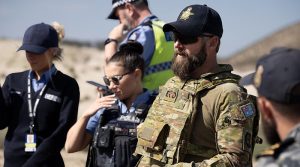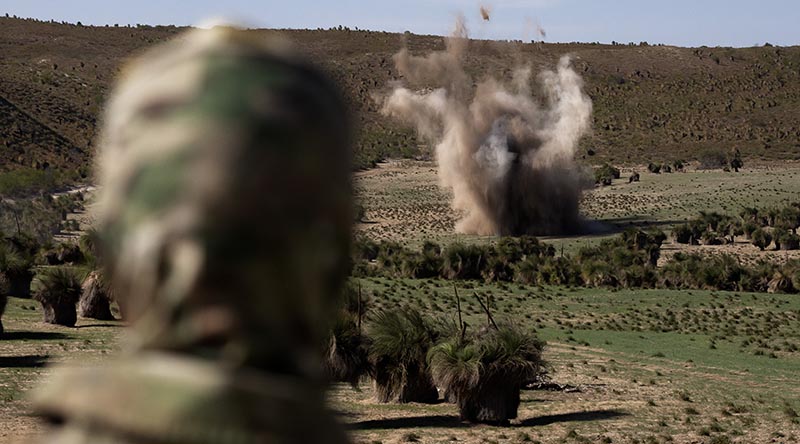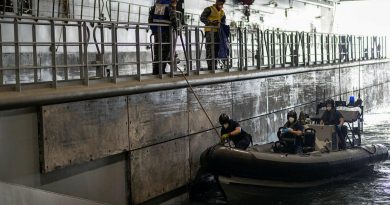UXOs destroyed in WA

A recent joint operation between the ADF and emergency services led to six unexploded WWII-era munitions being destroyed on a commercial farm in Two Rocks, WA.
CAPTION: A Joint Explosive Ordnance Support – West member watches the blast of an explosive ordnance disposal task on farmland at Two Rocks, Western Australia. Photo by Petty Officer Craig Walton.
The potentially lethal relics, unearthed by a civilian contractor during routine grid searches, dated back to the 1940s when the area served as a training ground for artillery, mortars, anti-tank weaponry and aerial bombing.
Prompted by Western Australia Police (WAPOL), a team of explosive experts from ADF Joint Explosive Ordnance Support (JEOS), the Department of Fire and Emergency Services (DFES) and WAPOL conducted the coordinated operation.
JEOS specialists, whose role includes explosive ordnance disposal and assurance support, identified and destroyed three 25-pound high-explosive artillery projectiles, two 3-inch high-explosive mortars, and one 25-pound smoke carrier projectile.
The operation also necessitated WAPOL’s establishment of a secure perimeter to protect the public, while DFES remained on alert for any secondary fires or exposure to hazardous materials.

Constable Melissa Jones, of Yanchep Police Station, said partnering with Defence was important.
“In working together, the Defence Force, WAPOL and DFES can ensure the operation is effective, completed in a timely manner and the room for error is minimised,” Constable Jones said.
“The partnership of the agencies ensures the safety of those involved and the wider community.
“Each agency provides a role that supports the other and the requirements needed during the operation.”
This explosive ordnance disposal task was among several undertaken by JEOS-WA in public spaces this year.
Averaging about one per week, some of these are attributed to civilians inadvertently possessing explosive ordnance – often heirlooms from family members’ military service or foreign conflicts.
JEOS Captain Ben Nieuwoudt said some people didn’t realise they had live explosive ordnance in their possession.
“Most of it has been left from their grandparents or parents who took them as souvenirs,” Captain Nieuwoudt said.
“I really enjoy this kind of work because we are making a difference to the community by removing dangerous explosive items from the public domain, as JEOS has an operational focus to restore the situation to normality as soon as possible.”
.
.

.
.





